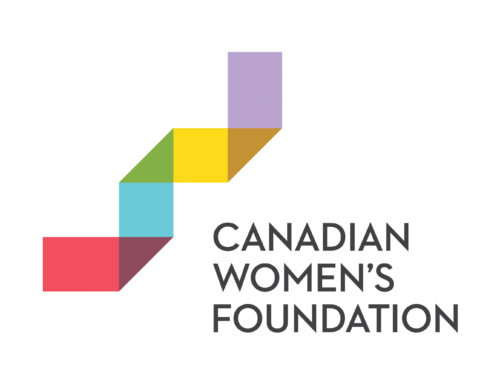The past year has seen several crucial moves toward closing the gender pay gap in Canada. The 2018 Federal Budget promised proactive pay equity legislation for federal workers, Ontario passed new pay transparency legislation in April, and Canadian universities have begun to equalize their gender pay differences.
While all of these are important steps in making the pay gap a thing of the past, we’ve still got a long way to go. According to 2016 Census Data from Statistics Canada, women working full-time, year-round jobs in Canada still earn just 75 cents for every dollar that men earned. This gap is even greater for racialized, Indigenous, and newcomer women, as well as women with disabilities.
Childcare, transit, and formal or informal networking opportunities are all important parts of the quest to close the gender pay gap – they are what we call wrap-around supports. These crucial services help women overcome seemingly small problems that can actually be big obstacles to completing a training program, entering the workforce, holding down a job, and earning a fair and equal wage.
Wrap-around supports are also part of the programs run by many of the Foundation’s grantees. One of these programs is Women Unlimited in Nova Scotia, where women receive training to enter the skilled trades and technology fields. The program’s wrap-around supports have helped 765 women graduate since 2006 by addressing the following issues:
1. Childcare
Access to affordable, accessible, quality childcare is key to closing the pay gap, but childcare is prohibitively expensive and severely lacking across most of Canada. In Toronto, infant daycare fees are around $21,000 per year. In Ottawa, 95 per cent of licensed daycares surveyed said they kept a waiting list, while in Charlottetown and across most of Quebec there are only enough daycare spots for around 70% of children who require them.
Without access to childcare, mothers who want – or need – to get back into the workforce are unable to do so, impacting their future earning potential. Even if they do re-enter the workforce, working women without access to reliable childcare are more likely to take time off work for family responsibilities, which can affect their performance and future career. At Women Unlimited, women receive subsidies to help cover the cost of childcare: almost half of the participants are single mothers.
2. Transit and Infrastructure
Every day, 400,000 women in the Greater Toronto Area (GTA) commute to work using public transit. Women represent almost 58 per cent of the daily commuter crowd in the GTA, and 33.8 per cent of women used sustainable transit to get to work in 2016, compared to 29.1 per cent of men. Despite all these daily commuters, Toronto was listed as the 6th worst city in the world for commuting in 2018.
In northern B.C., Greyhound recently cancelled all bus service along Highway 16 (also known as the Highway of Tears), citing a lack of profit. While the provincial government has replaced the buses with temporary services, the lack of reliable, affordable, accessible transit leaves those living in isolated communities unable to access necessary opportunities.
At Women Unlimited, participants can access transport subsidies. They can also access driver education training, which helps them attend the program and also gives them an essential workplace skill. Investing in accessible, affordable transit and infrastructure (including subways, streetcars, highways, and city roads) helps women access education and training programs, a wider range of better-paying jobs, and new career opportunities.
3. Networking
Even once women are in the workplace, they face significant disadvantages – a lack of women in high-level positions or in male-dominated industries makes it difficult for women to move up the corporate ladder or into non-traditional industries.
Networks can make all the difference in moving up and into better-paying positions: women who actively build or participate in networks in their personal and professional lives are exposed to new ideas and professional connections, are alert to career opportunities, and have vital social and emotional support systems. In all industries and at all levels, professional networks give women the chance to tackle issues that other women in their industry might be facing.
Women Unlimited includes past graduates in their Mentoring Network, and “sisterhood” is an integral part of the program’s culture. Past graduates working in the skilled trades and technologies are an invaluable support to current and future participants of the program, as are the businesses and employers that have hired them.
While wrap-around services are vital for women when it comes to finding and keeping a job and succeeding in their careers, they’re often underfunded or non-existent. Organizations like Women Unlimited are providing these wrap-around supports because the government and employers are not – for example, despite years of advocacy work by organizations like the Canadian Centre for Policy Alternatives and Childcare Canada, Canada still does not have a universal child care program.
Because of a lack of affordable childcare, accessible transit, and women-driven career networks, some women are forced to be absent from work and often can’t advance their careers or access better-paying jobs. All of these factors contribute to a significant gender pay gap, even when accounting for education, years of experience, and skill level.
Legislation for the right to equal pay is a win for women as a whole in Canada, but we have to remember some women are held back from participating in the workforce because of a lack of wrap-around supports. Those women may not feel directly and personally impacted in a positive way by the legislation if they can’t even access paid job opportunities.
Ultimately, both pay equity legislation and wrap-around supports are crucial steps toward closing the gender pay gap and, more broadly, building a gender-equal Canada.
Learn More:
- Two Steps Forward
- How Wrap-Around Supports Tackle 9 Big Problems Women Face
- A Deficit Worth Worrying About: The Gendered and Racialized Wage Gap
Take Action:
- Sign up for our e-newsletter to have our latest stories and resources sent to your inbox.
- Follow us on Facebook and Twitter to join a national conversation about gender equality.







